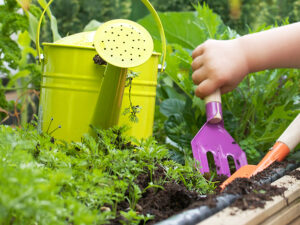Introduction to Science for Young Explorers
- Description
- Curriculum

I. Introduction:
Welcome to “Introduction to Science for Young Explorers,” where your child’s curiosity will be sparked and their love for learning ignited! This course is designed specifically for children aged 3 to 7, aiming to introduce them to the wonders of the scientific world through fun and interactive activities. From observing nature to conducting simple experiments, your little explorer will embark on a journey of discovery, asking questions, making predictions, and uncovering answers along the way.
II. Course Objectives:
• Spark curiosity and a love for exploring the world around them.
• Introduce basic scientific concepts in a fun and engaging way.
• Develop observation, prediction, and experimentation skills.
• Encourage creativity and problem-solving through hands-on activities.
III. Course Highlights:
Module 1: The Wonder of Observation
• Lesson 1: The Power of Observation
• Introduction to observation skills
• Exploring the environment through the senses
• Lesson 2: What Do You See?
• Guided observation activities indoors and outdoors
• Recording observations in a nature journal
Module 2: Asking Questions
• Lesson 3: Curiosity Unleashed
• Encouraging curiosity and asking questions
• Brainstorming and discussing questions about the world
• Lesson 4: Let’s Investigate!
• Choosing questions to explore through simple experiments
• Formulating hypotheses
Module 3: Exploring the Natural World
• Lesson 5: Plants and Animals
• Introduction to basic botany and zoology concepts
• Observing plant growth and animal behaviour
• Lesson 6: Our Earth and Beyond
• Exploring the sky, weather, and seasons
• Introduction to astronomy and space exploration
Module 4: Hands-On Experiments
• Lesson 7: Kitchen Science Fun
• Conducting simple experiments using kitchen ingredients
• Exploring concepts like states of matter, chemical reactions, and buoyancy
• Lesson 8: Messy Science Adventures
• Engaging in sensory and messy experiments
• Exploring concepts like viscosity, surface tension, and absorption
Module 5: Science in Everyday Life
• Lesson 9: Science at Home
• Finding science in everyday activities and objects
• Encouraging scientific inquiry in daily life
• Lesson 10: Becoming Young Scientists
• Reviewing key concepts learned throughout the course
• Celebrating accomplishments and fostering a love for lifelong learning
-
1Nvidia New Technologies Slides
Welcome to your first slider tutorial. This slides will start with a simple introduction. Then, You will open up google cause I"ll show you where you can download the blender software and which version of it will we be using in the entire course period.
Note: The download link is available with the lecture, plus the .pdf file is also included for you to download if you still need help downloading the software.
-
2Engine Target Audience
-
3Quiz: Mobile / Native Apps
-
4Realistic Graphic on UE4
-
5Volta GPU for optimization.
The Tensor Core GPU Architecture designed to Bring AI to Every Industry. Equipped with 640 Tensor Cores, Volta delivers over 100 teraflops per second (TFLOPS) of deep learning performance, over a 5X increase compared to prior generation NVIDIA Pascal architecture.
-
6Deep Learning







